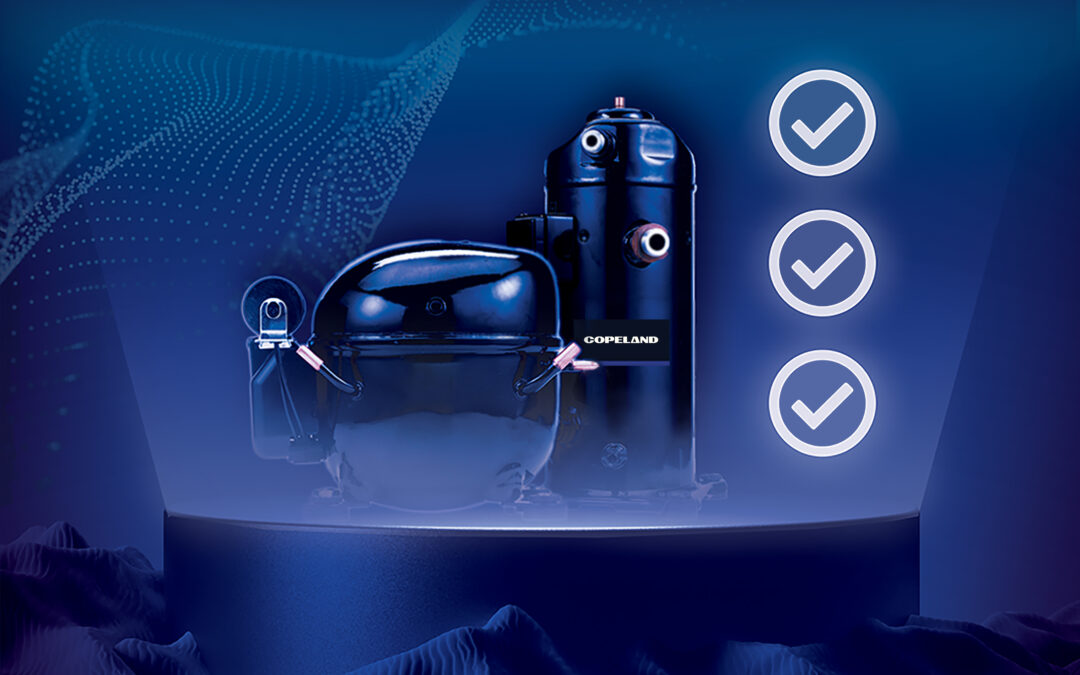*On June 1, 2023 Emerson’s Climate Technologies business became a new standalone company – Copeland. Though our name has changed, we are building on more than a century of HVACR innovation and industry leadership, and Copeland continues to offer the same products, industry stewardship, and learning opportunities you’ve grown to trust. Information found on this webpage posted before June 1, 2023 may contain our old name or branding, but you can be at ease knowing it was created with the knowledge and expertise of Copeland.

Today, more supermarkets, restaurants and convenience stores are re-evaluating natural refrigerants to comply with environmental regulations and achieve sustainability objectives. As refrigeration technology continues to improve, equipment manufacturers are working closely with these forward-thinking companies to develop innovative solutions. These efforts have resulted in several creative natural refrigerant applications that expand upon their traditional uses in commercial refrigeration.
For example, the idea of using ammonia (NH3 or refrigerant name R-717) in food retail is relatively unheard of — until recently. In 2015, the Piggly Wiggly supermarket company opened a new 36,000-square-foot store in Columbus, Ga., that utilizes an NH3/CO2 cascade system manufactured by Heatcraft Worldwide Refrigeration. The all-natural refrigerant system uses an ultra-low charge of ammonia (53 pounds) located on the facility’s roof — away from occupied spaces and virtually eliminating any safety concerns. The innovative system earned the retailer the highest certification level (platinum) from the EPA’s GreenChill Partnership, making it only one of 10 supermarkets in the U.S. to receive the award. It’s also the fourth supermarket in the U.S. to use this NH3/CO2 cascade architecture.
In cold storage applications, where ammonia has been the preferred refrigerant for decades, companies are increasingly looking to carbon dioxide (CO2) to proactively lower ammonia charges and avoid regulatory entanglements. So, as older ammonia systems near replacement, many operators are evaluating the best option to expand their facility’s low-temperature capabilities. They’re accomplishing this by adopting NH3/CO2 cascade systems that not only utilize very low charges of ammonia, but also keep the R-717 circuit out of occupied spaces.
Propane is also making comeback, so much so that Target recently announced their intentions to use only propane in their self-contained units. Many other retailers have followed suit, implementing R-290 units as part of their refrigeration portfolios. It’s an indication that the mainstream perceptions about the viability of R-290 are shifting. Its lower charge limits make R-290 a logical fit for Target’s smaller, stand-alone refrigerated display cases and coolers. All of this is part of the retailer’s pledge to become a sustainability leader in the food retail space.
From strictly environmental or performance perspectives, these new natural refrigerant systems are tough to beat. Of course, there are other important considerations when selecting a commercial refrigeration system — such as safety and maintenance requirements — where natural refrigerants pose unique challenges. But these newer systems are proof of how operators are making the decision to go natural and deal with these challenges. Target, for example, gave its contractor network advanced notice to seek the necessary training before deploying its self-contained, R-290 units.
Often, these new systems are also delivering energy-efficiency improvements. And in many self-contained R-290 units being installed across the country, they are also meeting the DOE’s mandate for energy efficiency. So, for true future-proof refrigeration systems, natural refrigerants are currently the best option available to meet both EPA and DOE regulatory requirements.
Read the full Accelerate America article [pg.16].

Electrical component considerations for A2L system safety
Electrical component considerations for A2L system safety As a new refrigerant category in the...

A2L refrigerant regulation updates: what you need to know today
Preparing for the approval and safe use of A2Ls in commercial refrigeration applications The move...

Address Efficiency Mandates with Compression Technologies
Strategies for complying with DOE and ENERGY STAR® in self-contained and remote condensing units...
